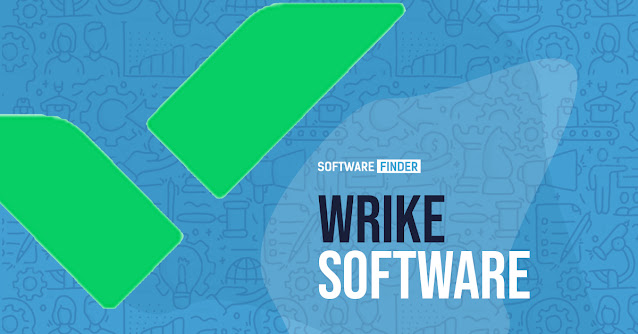What are Digital Health Platforms & How They Enable Predictive & Interoperable Care?
Thinking about what are Digital Health Platforms? Well, speaking broadly, digital health platforms are the solutions leading the way in the transformation of the healthcare industry. Healthcare systems have a significant issue as data floods in from many sources, including claims, electronic health records (EHRs), patient monitoring, and socioeconomic determinants i.e., how to interpret it all.
Simply said, digital health platforms are complete, integrated solutions that aim to simplify healthcare administration. They employ advanced artificial intelligence to integrate information from multiple sources, analyze it in real time, and deliver actionable insights. Such technologies help healthcare organizations enhance patient care, reduce inefficiencies, and make improved decisions.
Why are healthcare systems turning to digital health platforms?
Unstructured data dispersed across several platforms is overwhelming healthcare practitioners. What was the result? A perpetual effort to meet patient care needs while maintaining compliance, data correctness, and administrative chores. Here are the primary pain points that drive the adoption of digital health platforms.
Data silos: Healthcare data resides in silos, making it difficult to obtain the entire patient story.
Delayed Decision Making: Retrospective analysis, which is common in many healthcare systems, leads to reactive rather than proactive treatment.
Inefficient workflows: Manual data input and processing raise the risk of mistakes and slow down important activities.
Compliance Obstacles: Meeting regulatory requirements becomes difficult without efficient data management.
Who is Driving the Charge in Healthcare-Specific PBCs?
Several important firms are making considerable progress in the delivery of healthcare-specific Packaged Business Capabilities (PBCs).
Amazon Web Services (AWS): With healthcare-specific technologies like Comprehend Medical, which gleans medical insights from unstructured data, and Transcribe Medical, which converts speech to text, AWS, which is renowned for its ingenuity, establishes new standards for data processing and storage.
Google: Google's Care Studio transforms data integration and visualization. Vertex AI for Healthcare improves medical data search skills while pushing the limits of real-time data insights.
Microsoft: The Microsoft Cloud for Healthcare contains products such as Azure Health Bot and Fabric, which provide seamless data integration and powerful analytics.
Better Platform: Solutions aimed at improving care quality, such as medication management for electronic prescriptions and PROMs (patient-reported outcomes), are setting new standards for patient participation and care improvement.
Persivia Inc.: CareSpace®, a growing challenger, is gaining traction for its modular, composable design. It specializes in population health management, AI-driven insights, and integrating data from several sources to automatically develop patient-specific treatment plans. Persivia demonstrates that being creative does not necessarily imply being the largest player.
Core Components of Digital Health Platforms
To achieve effect, digital health platforms must be based on solid basic components. Let us break down the main elements:
Transitioning from Data Overload to Smart Insights
Modern digital health platforms rely heavily on artificial intelligence. It helps to filter through massive volumes of healthcare data, identify risks, and correctly forecast outcomes. This proactive method not only saves time but also raises the quality of care.
Key AI Functions for Digital Health Platforms:
Risk Prediction: Monitors high-risk patients using both historical and real-time data.
Workflow Automation: Simplifies repetitive tasks so medical staff may concentrate on providing direct patient care.
Data Validation: Reduces human error and boosts the accuracy of patient records.
Customized Care Plans: Treatment strategies are based on unique patient profiles and predictive analytics.
Breaking Down Barriers with Interoperability
Seamless data transmission across healthcare systems remains a chronic difficulty. Digital health solutions stress interoperability, connecting different data sources with standardized formats and strong APIs. This technique guarantees that vital patient information flows uninterrupted, improving coordination and care continuity.
Modular Architecture Allows for Greater Flexibility
Healthcare requirements are continually changing. Modularly designed digital health solutions enable companies to make adjustments without completely redesigning the system. Healthcare businesses can guarantee long-term existence by employing Packaged Business Capabilities (PBCs), which enable them to enhance or expand specific operations whenever necessary.
Challenges and Considerations for Implementing Digital Health Platforms
Despite the clear benefits, integrating digital health systems presents a unique set of difficulties.
Integration Complexity: Existing systems might be obsolete or incompatible.
Training Needs: To manage new technology, employees must receive proper training.
Privacy concerns: Protecting patient data while integrating new platforms is crucial.
Integrate Persivia’s CareSpace® to Get Superior Outcomes
Persivia's CareSpace® distinguishes out as a complete and adaptable digital health platform built to address healthcare concerns precisely. By seamlessly combining real-time data from several sources, including EHRs, claims, social determinants, and monitoring devices, it provides medical practitioners with thorough patient insights. AI-powered advanced analytics facilitate regulatory compliance, workflow efficiency, and clinical decision-making. CareSpace®'s modular design allows it to adapt to the constantly shifting needs of healthcare institutions and offer tailored solutions. Investing in CareSpace® promotes data integrity, more efficient operations, and better patient outcomes.
All in all, a platform that facilitates smooth integration and real-time insights is essential as patient expectations change and data complexity rises. Select a platform that uses data to your benefit instead of the other way around.



Comments
Post a Comment